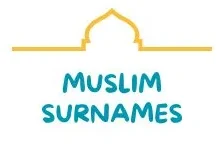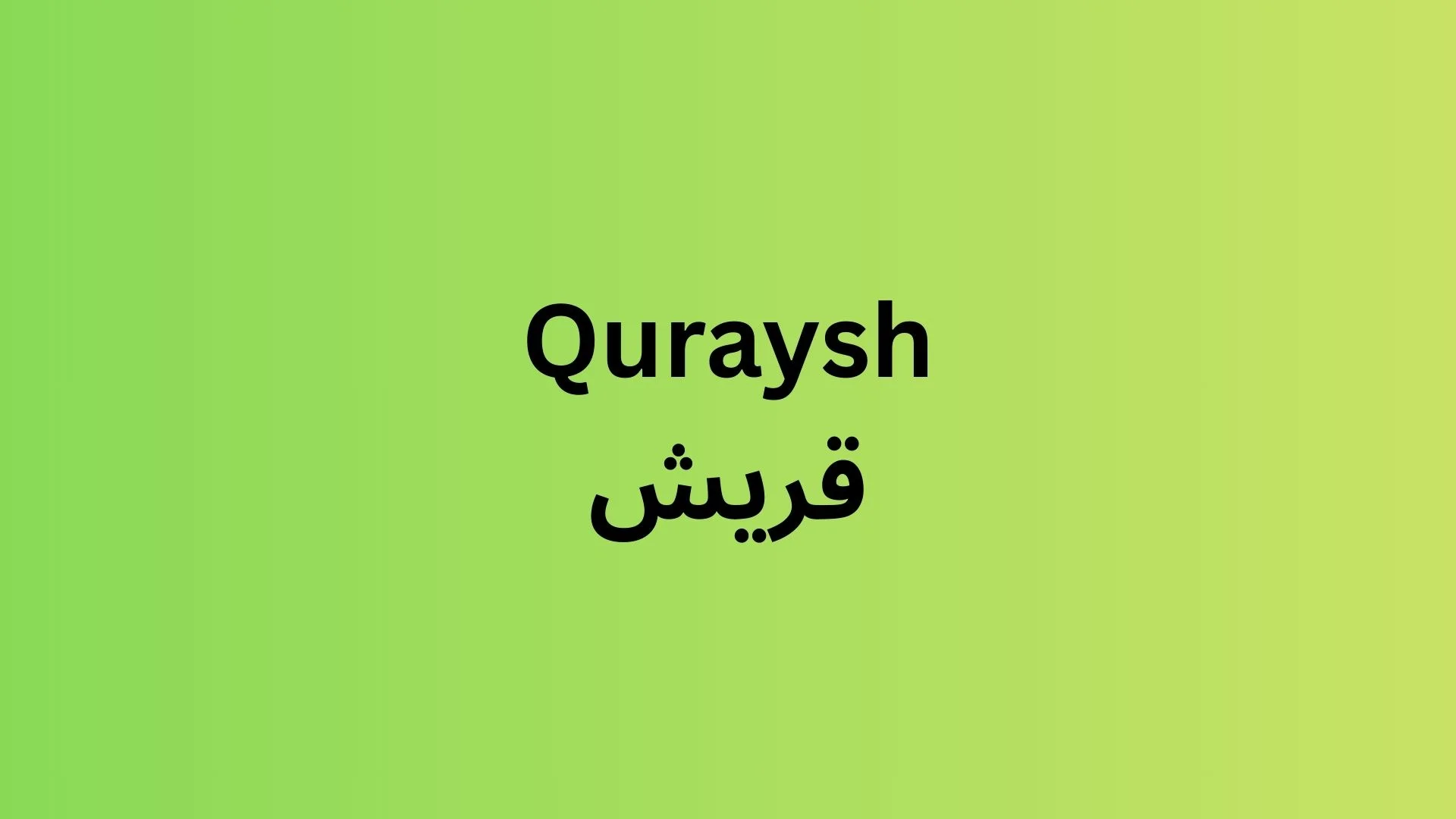Qurayshi Surnames
The Quraysh tribe was one of the most influential and respected tribes of Arabia, centered in Makkah. They held custodianship of the Ka‘bah and played a vital role in trade, politics, and culture during pre-Islamic and early Islamic times. The Prophet Muhammad ﷺ himself belonged to the noble Quraysh tribe, specifically from the clan of Banu Hashim. Over time, various surnames emerged from different clans (banu) of Quraysh, many of which continue to survive among Muslim families around the world.
Below is a list of Qurayshi surnames, their literal meanings, and Arabic forms.

| Surname | Arabic | Meaning |
|---|---|---|
| Al-Hashimi | الهاشمي | Descendant of Hashim (ancestor of Prophet ﷺ) |
| Al-Muttalibi | المطلبي | Descendant of al-Muttalib (uncle of Hashim) |
| Al-Umari | العمري | From Umar (related to Banu Adi clan) |
| Al-Zuhri | الزهري | From Zuhra, meaning “flower, brightness” |
| Al-Taymi | التيمي | From Taym ibn Murrah, meaning “servant, devotee” |
| Al-Makhzumi | المخزومي | From Makhzum clan, meaning “to store or gather” |
| Al-Abdari | العبدي | From ‘Abd ad-Dar clan, meaning “servant of the house” |
| Al-Sahmi | السهمي | From Sahm, meaning “arrow or share” |
| Al-Jumahi | الجمحي | From Jumah clan, meaning “gathering” |
| Al-Aamiri | العامري | From ‘Amir, meaning “prosperous, flourishing” |
| Al-Muttalibi | المطلبي | From Muttalib, custodian of the Ka‘bah |
| Al-Kinani | الكناني | From Kinana tribe, forefathers of Quraysh |
Descriptions of Qurayshi Surnames
Al-Hashimi (الهاشمي)
Belonging to the Banu Hashim, descendants of Hashim ibn ‘Abd Manaf, this is the clan of Prophet Muhammad ﷺ. Families with this surname often claim noble Qurayshi lineage.
Al-Muttalibi (المطلبي)
Derived from al-Muttalib ibn ‘Abd Manaf, uncle of Hashim. This clan was closely allied with Banu Hashim.
Al-Umari (العمري)
Linked to Banu Adi, the clan of the second caliph, ‘Umar ibn al-Khattab (RA). The name means “descendants of Umar.”
Al-Zuhri (الزهري)
From Banu Zuhra, the maternal clan of Aaminah bint Wahb (RA), the mother of Prophet Muhammad ﷺ. The word Zuhra means “brightness” or “flower.”
Al-Taymi (التيمي)
Descendants of Taym ibn Murrah, a respected Qurayshi clan. The famous companion Abu Bakr as-Siddiq (RA) belonged to this clan.
Al-Makhzumi (المخزومي)
One of the most powerful Qurayshi clans, known for wealth and influence. The term Makhzum is associated with “to store, to preserve.”
Al-Abdari (العبدي)
From Banu ‘Abd ad-Dar, custodians of the Ka‘bah before Islam. Their surname means “servant of the house.”
Al-Sahmi (السهمي)
Belonging to Banu Sahm, a Qurayshi clan known for their involvement in trade. The name Sahm means “arrow” or “share.”
Al-Jumahi (الجمحي)
From Banu Jumah, a smaller Qurayshi clan. The word Jumah means “to gather or assemble.”
Al-Aamiri (العامري)
Derived from Banu ‘Amir, a clan meaning “prosperous, thriving.”
Al-Kinani (الكناني)
While not strictly a Qurayshi surname, Kinana is the ancestral tribe from which Quraysh descended. Families sometimes use this surname to signify ancient lineage.
Conclusion
The Quraysh tribe and its many clans played a central role in Arab history and Islamic civilization. Qurayshi surnames still carry a sense of nobility, ancestry, and historical significance. Whether Hashimi, Taymi, Makhzumi, or Zuhri, these names remain deeply rooted in Islamic heritage, reminding us of the Quraysh’s pivotal role in the early days of Islam.
FAQs about Qurayshi Surnames
Q1. Is every Qurayshi surname directly related to the Prophet ﷺ?
No. The Prophet ﷺ belonged to the Banu Hashim clan, but Quraysh had many clans, each with its own descendants and surnames.
Q2. Do these Qurayshi surnames still exist today?
Yes. Many families in the Middle East, North Africa, and South Asia still carry Qurayshi surnames, particularly Hashimi, Muttalibi, and Umari.
Q3. How many clans did Quraysh have?
The Quraysh tribe had more than a dozen clans, including Banu Hashim, Banu Makhzum, Banu Umayyah, Banu Taym, Banu Zuhra, and Banu ‘Abd ad-Dar.
Q4. What does “Quraysh” itself mean?
Scholars differ, but it is often said to mean “to trade, to gather, or to unite.”


1 thought on “Surnames of the Quraysh Tribe and Their Clans”